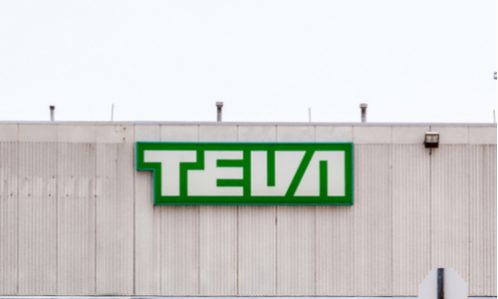
Teva Pharmaceuticals, the world’s largest producer of generic drugs, received a substantial blow on Thursday when the European Union fined the company €462.6 million ($503 million) for antitrust violations. According to Reuters, EU regulators determined that Teva used its dominant market position to stifle competition for its best-selling multiple sclerosis medication, Copaxone, by unlawfully delaying the entry of alternative treatments.
The European Commission stated that Teva’s actions included artificially extending patent protections on Copaxone and spreading misleading information about a competing product. This decision corroborated an earlier report by Reuters in September, which anticipated the European Commission’s findings. The company, however, has signaled its intent to challenge the ruling. Teva expressed disappointment and argued that the Commission’s legal theories lack solid evidence and a sound legal foundation, asserting its intention to appeal the decision.
Margrethe Vestager, the EU’s Competition Commissioner, underscored the broader implications of the decision, saying it demonstrates the EU’s commitment to ensuring fair competition within the pharmaceutical sector. Vestager stated that such enforcement helps “keep drugs affordable, preserve choice of treatment, and foster innovation, benefitting patients across the EU,” per Reuters.
Read more: Teva Faces EU Antitrust Fine Over Copaxone Practices
The Commission’s investigation found that Teva’s actions impacted several European markets, including Belgium, Germany, Italy, and Spain. According to their findings, Teva allegedly manipulated patent procedures and spread misinformation targeting healthcare professionals and authorities responsible for drug pricing and reimbursement. This misinformation campaign, the Commission stated, aimed to sow doubts about the safety and efficacy of a rival drug, thus delaying its entry into the market and extending Copaxone’s market exclusivity.
The roots of this antitrust case stretch back to 2019 when European authorities initiated surprise inspections at Teva offices, eventually opening a formal investigation in 2021. Per Reuters, this decision aligns with a recent trend in the EU’s stringent regulation of the pharmaceutical industry. In a related antitrust case in July, the European Commission closed an investigation into CSL-owned Vifor Pharma, which committed to refraining from disparaging a competitor’s iron deficiency treatment, avoiding a potentially severe penalty.
Teva, in response to the EU’s ruling, reiterated its disagreement with the decision’s foundation, arguing that it has cooperated fully with the investigation since 2019. The company maintained that its stance is well-supported by financial resources for a robust legal defense as it prepares for the appeal process.
Source: Reuters

New York Attorney General Letitia James called on lawmakers Thursday to prioritize the creation of a federal framework for regulating cryptocurrencies, highlighting the urgent need for stronger protections for digital asset investors. In a letter addressed to key members of Congress, including Senate Majority Leader John Thune and House Speaker Mike Johnson, James emphasized the necessity for comprehensive regulations to safeguard investors from the growing risks in the cryptocurrency market.
According to Reuters, James proposed that cryptocurrency companies be required to register with a federal agency and that minimum standards be established for listing digital tokens. This regulatory overhaul, she argued, would help bring much-needed transparency and security to the rapidly evolving sector.
James’ request comes as Congress seems poised to pass a bill that would introduce new regulations for stablecoins—cryptocurrencies designed to maintain a stable value, usually pegged to the U.S. dollar. Stablecoins are widely used in the crypto market to facilitate transactions and as a means of transferring funds between different digital assets like Bitcoin and Ether. In her letter, James stressed that issuers of stablecoins should be mandated to have a U.S. presence and keep reserves, including U.S. Treasuries, in American banks to further protect consumers.
Related: DOJ Dismantles Crypto Enforcement Unit, Refocuses on Criminal Use of Digital Assets
The push for stronger regulation is gaining momentum in Washington, where the cryptocurrency industry has become a significant political force. As per Reuters, the industry spent over $119 million in the 2024 elections, supporting pro-crypto candidates. This political engagement has garnered the attention of lawmakers, with figures like former President Donald Trump advocating for broad changes to U.S. crypto policies. Bo Hines, a key advisor to Trump on digital assets, recently stated that the White House hopes to see a stablecoin bill passed before August.
In her letter, James underscored the personal stakes involved for millions of American investors, particularly in New York, where many have faced financial losses due to scams and fraud within the cryptocurrency space. “Countless New Yorkers invest in cryptocurrency and digital assets, and more must be done to protect them and their money,” James wrote. “Thousands of investors in New York and across the country have lost millions of dollars to cryptocurrency scams and fraud that could be prevented with stronger federal regulations,” she added, stressing the importance of swift action to curb these risks.
As discussions around cryptocurrency regulation continue, James’ call for federal oversight reflects growing concerns about the industry’s impact on investors and the broader financial system.
Source: Reuters
Featured News
New York Attorney General Urges Federal Cryptocurrency Regulation
Apr 10, 2025 by
CPI
Procter & Gamble Under EU Antitrust Scrutiny Alongside Coca-Cola Bottlers
Apr 10, 2025 by
CPI
Judge Allows Burger King Employee Antitrust Case to Proceed
Apr 10, 2025 by
CPI
Jazz Pharmaceuticals Reaches $145M Antitrust Deal
Apr 10, 2025 by
CPI
Athletics Leaders Call for Congressional Help on Antitrust and NIL Rules
Apr 10, 2025 by
CPI
Antitrust Mix by CPI
Antitrust Chronicle® – The Airline Industry
Apr 10, 2025 by
CPI
Boosting Competition in International Aviation
Apr 10, 2025 by
Jeffrey N. Shane
Reshaping Competition Policy for the U.S. Airline Industry
Apr 10, 2025 by
Diana L. Moss
Algorithmic Collusion in the Skies: The Role of AI in Shaping Airline Competition
Apr 10, 2025 by
Qi Ge, Myongjin Kim & Nicholas G. Ruppe
Competition in U.S. Airline Markets: Major Developments and Economic Insights
Apr 10, 2025 by
Germán Bet